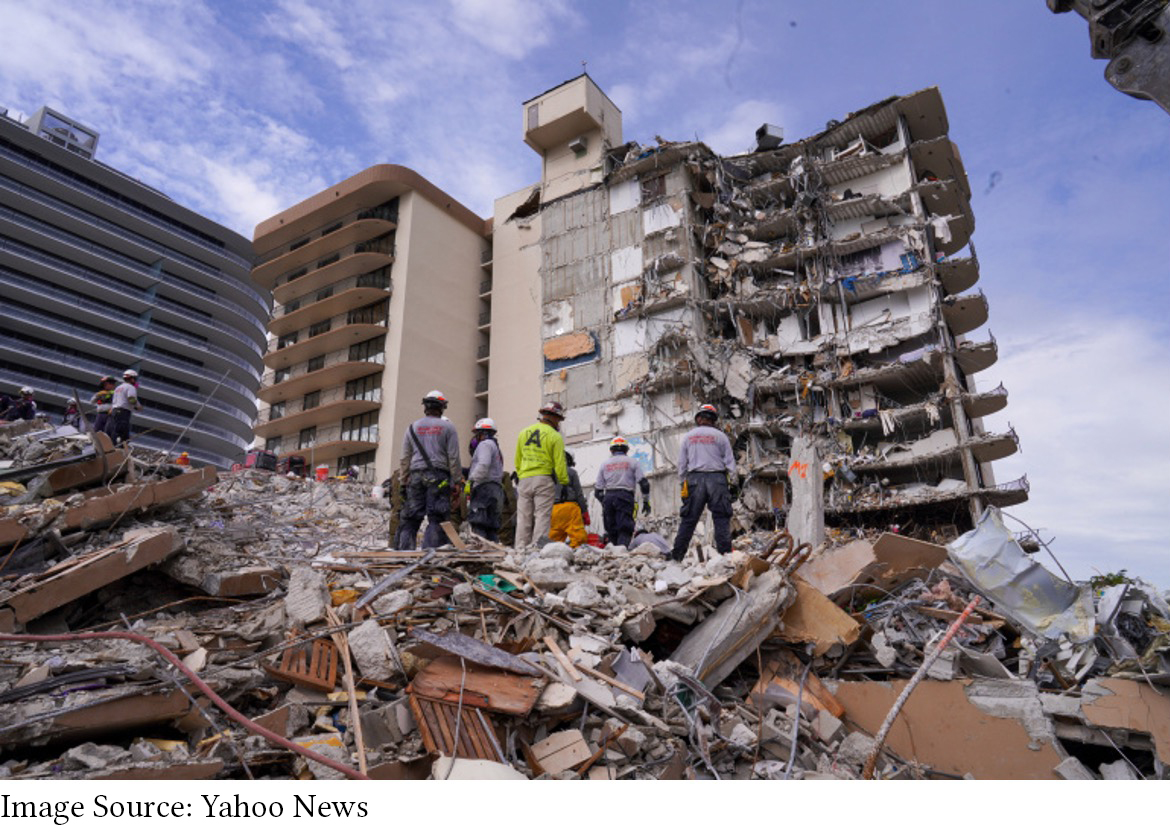Attentiveness: Foundation

Dr. Scott W. Sunquist
“If the foundations are destroyed, what can the righteous do?” Psalm 11:3

The recent collapse of the condominium building in Surfside, Florida was a dramatic reminder that all great buildings, all great institutions, all great families, are built on strong foundations. Psalm 11 reminds us that foundations—in this case the foundation of the godly life found according to God’s Law—make righteousness possible. When the foundations are compromised, “what can the righteous do?” The question has an assumed answer: “Nothing: we can do nothing.”
But what are the foundations that must not be compromised or destroyed? How can we make sure that this is not our problem? I had an experience of this a couple of weeks ago.
I was showing someone around our campus, and we started passing by the faculty offices. This person does not share our Evangelical ethos and, coming from a different tradition quickly made an observation: “Wow, you have so many people teaching the Bible. I have never seen a seminary with so many Bible faculty.” Feeling a little pleased with her comment, I smiled in a humble sort of way and said, “Well, we think the Bible is really important.”
Our foundation is the Bible: the whole narrative taken together, and every jot and tittle in the texts. We believe you should study it and inwardly absorb its ethos, details, ideas, and even emotions. We believe we should be moved to tears over personal and corporate sin, and we should be moved to great joy at one sinner who repents.
But let’s unpack our foundation a little more. When we say the Bible, we mean the Bible as it reveals to us salvation through Jesus Christ. We are less concerned about all the details of Scripture, except as they are testimony to Jesus Christ who is Lord of all. There is a stylistic icon with many variations of Jesus holding the Bible indicating that the Bible is about Him. Scripture exegetes who Jesus is. Jesus seems to be saying, “It is all about me.”
This is a reminder that our foundation is Jesus Christ. I Peter 2:1-8 explains that Jesus is the foundation or cornerstone for the church and for our lives. In all we do, we keep our eye focused on Jesus as taught according to all of Scripture.
Then, when we train leaders, when we respond to family tensions, when we answer the doubter, and when we face the social issues of our time, we do so from this foundation alone.
I remember having a discussion in a more pluralistic Christian setting where we were talking about reconciliation in the city. Christians who are much more broad in their views repeated over and over again the word reconciliation. But one very strong church leader corrected the erudite theologians and said, “Reconciliation is just a noun. You can inject it with many meanings. For Christians there is only reconciliation in Jesus Christ. If we are not talking about reconciliation in Christ, I can’t be part of this.”
He was right. If the foundation is destroyed, what can the righteous do?
The Gospel is powerful enough to bring peace to the angry, joy to the depressed, and humility to the proud. This is a miracle. But the miracles happen each day from our solid foundation of our lives firmly set on Christ, our cornerstone.
 Scott W. Sunquist, the President of Gordon-Conwell Theological Seminary, writes a weekly blog, “Attentiveness” which is posted each Tuesday on the Gordon-Conwell web site. He welcomes comments, responses, and good ideas.
Scott W. Sunquist, the President of Gordon-Conwell Theological Seminary, writes a weekly blog, “Attentiveness” which is posted each Tuesday on the Gordon-Conwell web site. He welcomes comments, responses, and good ideas.